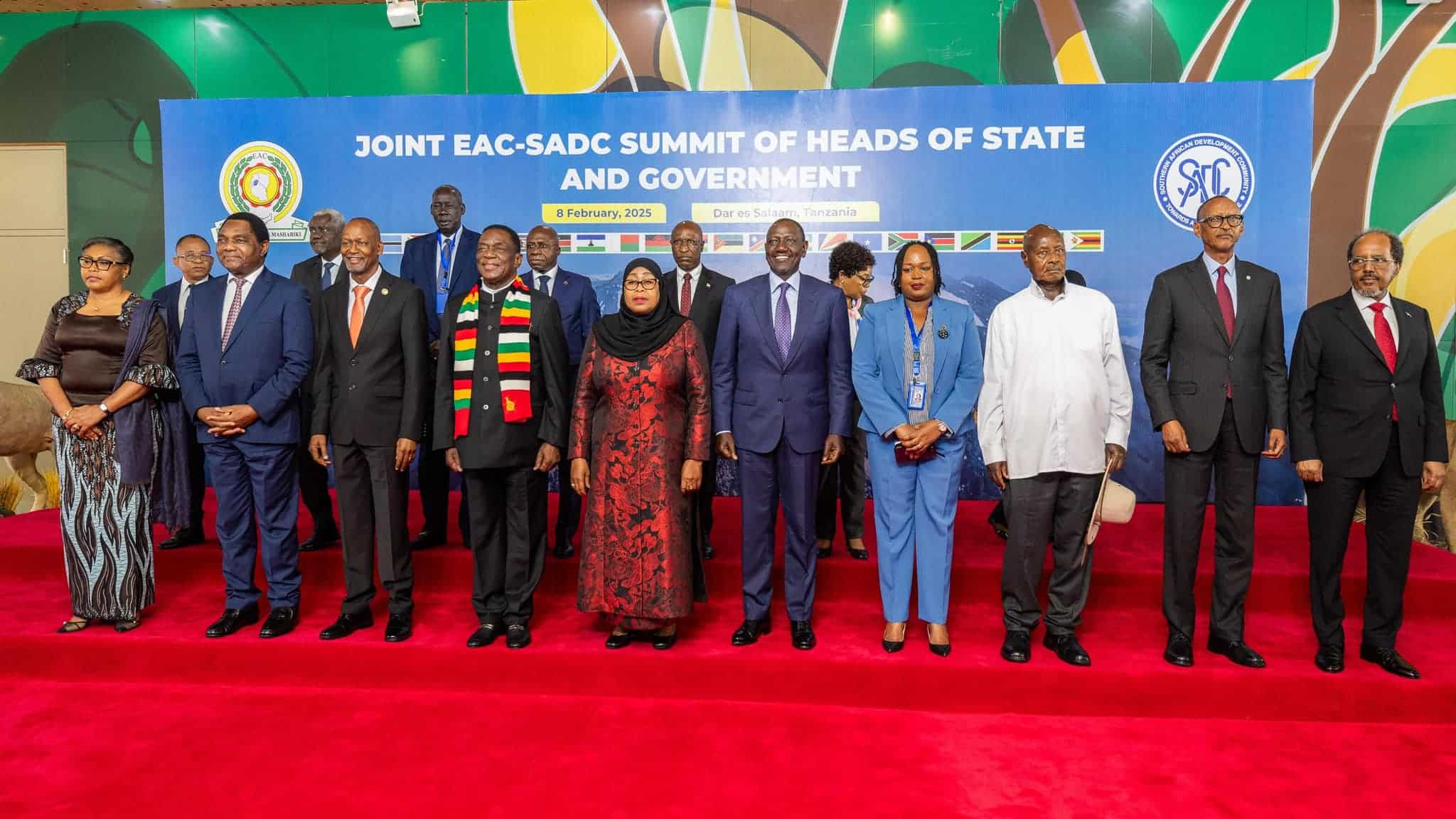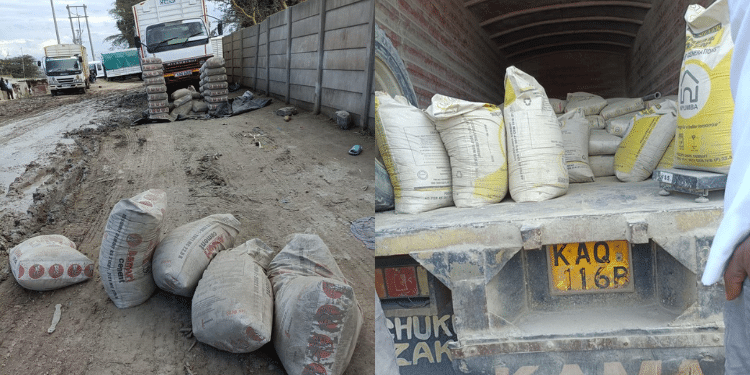Thirteen suspects and eight lorries loaded with bags of cement have been intercepted in a crackdown on cartels involved in illegal cement activities. In a statement, the Directorate of Criminal Investigations (DCI) said an intelligence-led market surveillance was conducted following numerous complaints by members of the public, especially the end users of cement concerning the quality and quantity of various brands in the market.
The operation was conducted on December 20 with a multi-agency team consisting of officers from Kenya Bureau of Standards (KEBS) and the DCI Operations Support Unit.
“The officers managed to arrest 13 suspects involved in these illegal activities and intercepted 8 lorries found loaded with bags of cement from the major brands which was being siphoned and repackaged thus interfering with the quality of the products for more profits,” DCI said.
The suspects will be processed and arraigned on Monday, December 23, as the operation extends to other parts of the country.

The officers targeted the hot spots where these illegal activities are carried out mostly in Athi River, Syokimau and Kitengela.
DCI said it has the multi-agency team has established the extent of illegal cement activities in Kenya.
DCI Lists Illegal Things the Cartels Do
Some of the activities done by these cartels include manufacturing and selling counterfeit and substandard cement.
Additionally, they are accused of adulteration of genuine cement with the introduction of pozzolanic dust which reduces the quality,
DCI said they also siphon cement from properly packaged bags which end up being underweight.
Other activities include transportation and distribution of substandard cement.
Besides, the Investigative said they are involved in illegal production of empty bags belonging to major brands to facilitate packaging.
“Such illegal activities by greedy businesspersons jeopardize the safety of Kenyans especially the millions who live in rental apartments, given the many tragic incidents of collapsed buildings,” DCI said.
KEBS Report on Cement
In September, KEBS surveyed 41 cement samples from eight brands and found a compliance rate of 63.4%.
KEBS assesses cement based on standards like strength, ingredients, markings, and responses to environmental factors such as air and chemicals like lime.
KEBS Managing Director Esther Ngari identified four key causes of substandard cement, including the use of low-quality raw materials like clinker.
Also Read: Joho & Junet Put ODM on Spot, Ruto’s Order on University Exams & Twists in Bamburi Cement Takeover
Clinker, an essential and costly ingredient in cement production, is often underutilized by manufacturers aiming to reduce costs, leading to inferior products.
She also attributed poor cement quality to inadequate process controls and cost-cutting shortcuts by manufacturers, often driven by profit motives.
She highlighted illegal activities such as adulteration and counterfeiting as additional contributors to the issue.
Also Read: Kenya Clears Tanzanian Tycoons’ Bid to Take Over Bamburi Cement
Furthermore, she pointed out challenges in supply chain transparency and control over packaging materials.
KEBS reassured Kenyans that the 38.1% non-compliance rate does not imply that 62% of all cement products fail to meet standards.
They clarified that compliance with critical parameters such as strength, setting times, and chemical composition reached 90%.
Follow our WhatsApp Channel and join our WhatsApp Group for real-time news updates.




![Debate Rages Over Proposed Increase In Legal Drinking Age [Video] Nacada Raises Legal Drinking Age From 18 To 21]( https://thekenyatimescdn-ese7d3e7ghdnbfa9.z01.azurefd.net/prodimages/uploads/2025/07/beer-360x180.jpg)



































































![Debate Rages Over Proposed Increase In Legal Drinking Age [Video] Nacada Raises Legal Drinking Age From 18 To 21]( https://thekenyatimescdn-ese7d3e7ghdnbfa9.z01.azurefd.net/prodimages/uploads/2025/07/beer-120x86.jpg)